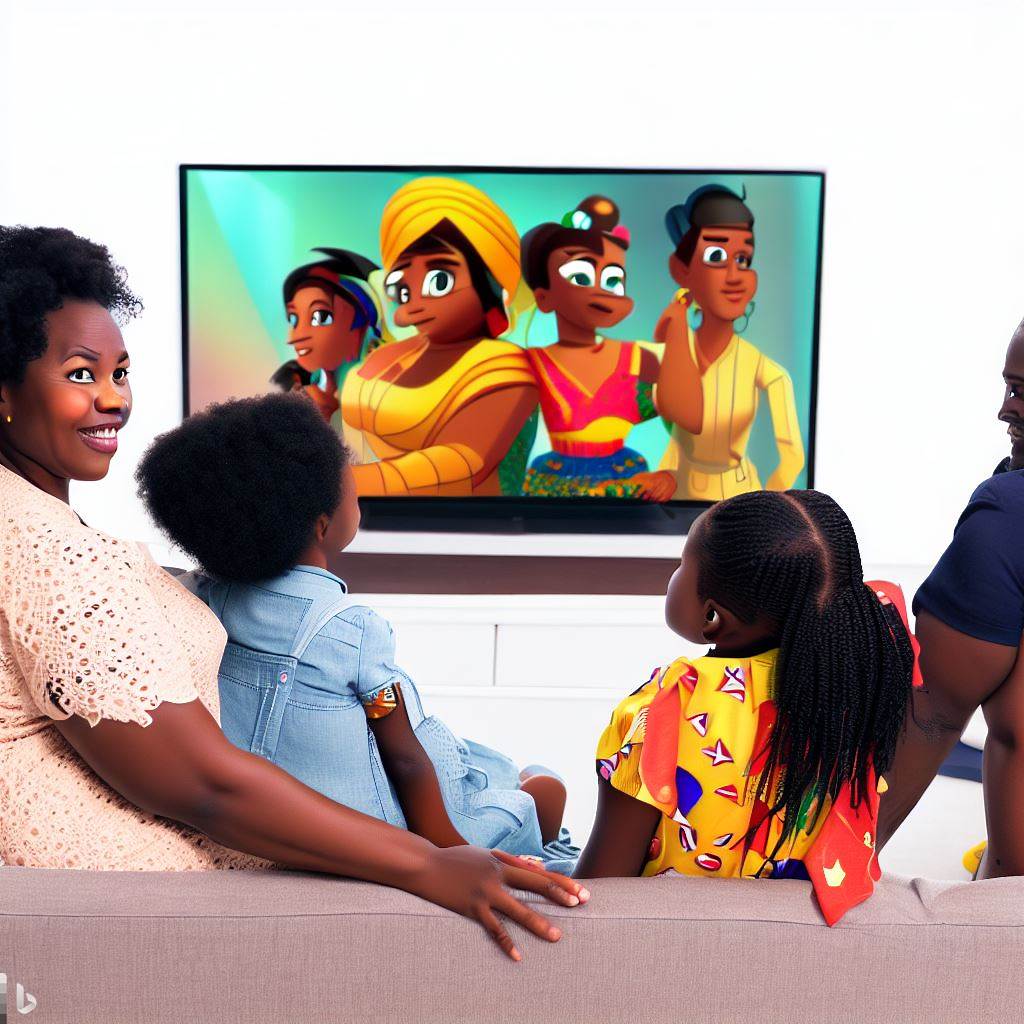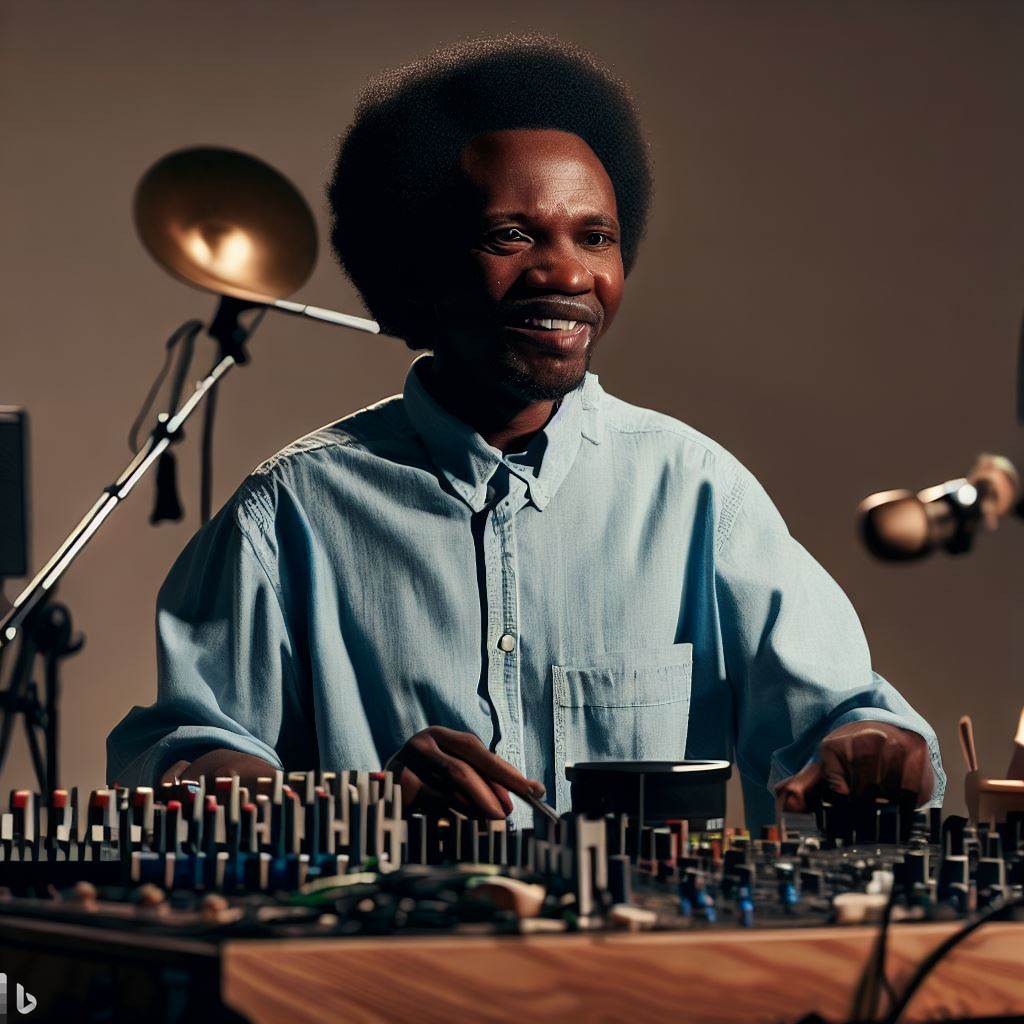Introduction
The Nigeria animation industry has made significant strides in recent years, showcasing its growth and development potential.
With a population of over 200 million people, Nigeria boasts a vibrant creative industry, and animation is gradually emerging as a key sector within this ecosystem.
The importance of the animation industry in Nigeria cannot be overstated.
It presents an opportunity to showcase the country’s rich cultural heritage, promote local talent, and contribute to economic growth.
Moreover, animation has the power to educate, entertain, and inspire audiences of all ages, making it a powerful tool for storytelling.
Over the years, Nigeria’s animation industry has experienced steady growth.
With advancements in technology and increased access to training and education, animators have been able to produce high-quality content that resonates with both local and international audiences.
This growth has been further fueled by collaborations between Nigerian animators and international studios, resulting in co-productions that have achieved global recognition.
The future of Nigeria’s animation industry looks promising.
As more young talents pursue careers in animation and more stakeholders invest in the industry, there will be an increase in the production of original, home-grown content.
This will not only create more job opportunities but also nurture a new generation of storytellers who can captivate audiences worldwide.
In general, Nigeria’s animation industry has undergone significant growth and has immense potential for further development.
With the right support, investments, and infrastructure, the industry can thrive, telling authentic Nigerian stories and contributing to the nation’s economic growth.
Read: Nigeria’s Entertainment Industry: A Goldmine for Creative Professionals
Nigeria’s Animation Industry: Past
A. Early history and pioneers of animation in Nigeria
- In the 1970s, Nigerian animation began with the work of filmmakers like Moustapha Alassane.
- Alassane’s film “Bon Voyage, Sim” was Nigeria’s first animated feature-length film released in 1972.
- Other notable pioneers include Gbenga Adewusi, creator of the popular Nigerian TV show “Binta and Friends.”
B. Challenges faced by the industry in its initial stages
- One of the main challenges was the lack of awareness and recognition for animation as a viable industry.
- Many Nigerians were more familiar with foreign animation, creating a preference for imported content.
- Limited access to funding and technical expertise made it difficult to produce high-quality animations.
C. Limited resources and lack of infrastructure
- The animation industry in Nigeria struggled due to the lack of access to proper resources and infrastructure.
- Animation studios faced challenges in acquiring necessary equipment, software, and technologies.
- Inadequate power supply and insufficient internet connectivity hampered the production process.
Generally, Nigeria’s animation industry has a rich history with pioneers like Moustapha Alassane and Gbenga Adewusi leading the way.
However, the industry faced numerous challenges in its early stages, including limited awareness, preference for foreign content, and a lack of funding and expertise.
Moreover, the lack of resources and infrastructure further hindered the industry’s growth.
Despite these obstacles, the Nigerian animation industry persevered and paved the way for future developments.
Read: The Evolution of Foley Artistry in Nigerian Film Industry
Nigeria’s Animation Industry: Present
A. Emergence of successful animation companies in Nigeria
Nigeria’s animation industry has witnessed the emergence of several successful animation companies, each contributing to the growth and development of the sector.
These companies, such as Anthill Studios, Hot Sis Animation, and Spoof Animation, have showcased the talent and creativity present in Nigeria’s animation industry.
They have produced high-quality animated content across various genres, including educational programs, commercials, and animated films.
B. Recognition and awards received by Nigerian animators
Nigerian animators have gained recognition both locally and internationally for their exceptional work.
They have received accolades and awards for their contributions to the animation industry. For instance, the animated short film “Malika: Warrior Queen” by Roye Okupe won the “Best Visual Effects” award at the 2020 Comic-Con Africa Awards.
This recognition not only highlights the skills of Nigerian animators but also puts Nigeria’s animation industry on the global map.
C. Collaboration with international studios and broadcasters
Nigeria’s animation industry has experienced a significant boost through collaborations with international studios and broadcasters.
This collaboration has allowed Nigerian animators to gain access to global markets and share their unique stories with a broader audience.
For instance, the collaboration between Lagos-based studios Clove Media and Magic Carpet Studios with Cartoon Network Africa resulted in the creation of “Mama K’s Team 4,” a Netflix original animated series that showcases African culture and superheroes.
D. Increased government support and intervention
The Nigerian government has recognized the potential of the animation industry and has increased its support and intervention.
The National Film and Video Censors Board (NFVCB) has established the “Naija Toons” initiative, which aims to empower and promote Nigerian animators by providing training, funding, and market access.
Additionally, the federal government has implemented policies and incentives to attract foreign investment in the animation sector, further boosting its growth and development.
The present state of Nigeria’s animation industry is promising, with the emergence of successful animation companies, recognition and awards, collaborations with international studios, and increased government support.
These factors indicate a bright future for Nigeria’s animation industry, making it a significant player in the global animation market.
Read: Animation Festivals in Nigeria: A Director’s Diary

Uncover the Details: Unveiling Nigeria’s Most Influential Media Personalities
Nigeria’s Animation Industry: Future
A. Potential for growth and investment in the industry
- The animation industry in Nigeria has immense potential for growth and attracting investments.
- The country’s large and diverse population provides a vast market for animated content.
- Investors can capitalize on the growing demand for animation in the entertainment and advertising sectors.
- With the right infrastructure and support, Nigeria’s animation industry can flourish.
B. Importance of promoting local talent and storytelling
- Highlighting local talent and storytelling is crucial for the development of Nigeria’s animation industry.
- By showcasing indigenous stories and characters, Nigerian animators can create unique and culturally relevant content.
- This promotes a sense of pride and identity among Nigerians while capturing global attention and recognition.
- The preservation and promotion of Nigeria’s rich cultural heritage are vital.
C. Opportunities for job creation and economic development
- The growth of Nigeria’s animation industry can contribute significantly to job creation.
- Animation studios require a diverse range of skilled professionals, including artists, writers, and technicians.
- Investments in training and education can help develop a talented workforce to meet industry demands.
- Job opportunities in animation extend beyond traditional media to areas such as gaming, virtual reality, and augmented reality.
- With proper support, the animation industry can become a major contributor to Nigeria’s economy.
D. Potential impact on Nigeria’s cultural representation in media
- Nigeria’s animation industry has the power to reshape the country’s cultural representation in media.
- Through animated content, Nigeria can present its diverse cultures, traditions, and folklore to the world.
- This can challenge stereotypes and misconceptions while fostering intercultural understanding and appreciation.
- The global reach of animation allows Nigeria to showcase its unique stories and perspectives.
- Cultural representation in the media can promote unity and pride among Nigerians.
In essence, Nigeria’s animation industry holds great promise for the future.
With the potential for growth, investments, and job creation, it can contribute significantly to the country’s economic development.
Promoting local talent and storytelling will ensure the creation of culturally relevant content that resonates with both Nigerian and global audiences.
As the industry expands, it has the opportunity to redefine Nigeria’s cultural representation in the media, showcasing the nation’s rich heritage and fostering intercultural understanding.
With the right support and investment, Nigeria’s animation industry can thrive and make a lasting impact.
Read: Nigeria’s Foley Artists: Breaking Down Sound Barrier in Movies
Challenges and Solutions
A. Addressing the issue of limited resources and infrastructure
- Insufficient funding hampers the growth of Nigeria’s animation industry.
- Collaboration with government agencies can facilitate access to financial resources.
- Investment in infrastructure like studios and equipment is essential for industry development.
- Partnerships with international organizations can provide technical expertise and support.
- Creating a conducive environment for investment through favorable policies and tax incentives.
B. Enhancing educational programs and training opportunities
- Limited availability of quality animation education restricts talent development in Nigeria.
- Establishing specialized animation schools or departments in existing institutions can address this issue.
- Curriculum development to include comprehensive courses on animation techniques and software.
- Collaboration with international animation schools for student exchange programs and shared expertise.
- Organizing workshops, seminars, and internships to provide hands-on training opportunities.
C. Encouraging public and private sector cooperation
- Lack of industry collaboration inhibits growth and innovation in Nigeria’s animation sector.
- Initiating platforms like conferences and networking events to bring industry professionals together.
- Establishing industry associations to facilitate communication and collaboration among stakeholders.
- Encouraging partnerships between animation studios, broadcasters, and content distributors.
- Government support through incentives and grants to promote public-private sector collaboration.
D. Developing effective strategies for marketing and distribution
- Inadequate marketing and distribution channels limit the reach of Nigerian animated content.
- Investing in marketing campaigns to promote domestic animation to a wider audience.
- Collaborating with media outlets and streaming platforms to showcase and distribute Nigerian animation.
- Partnerships with international distributors to tap into global markets and increase revenue streams.
- Utilizing social media platforms and online platforms to reach a global audience.
Lastly, Nigeria’s animation industry faces numerous challenges, but solutions are within reach.
Addressing limited resources and infrastructure, enhancing educational programs, encouraging cooperation, and developing effective marketing and distribution strategies can unlock the Nigerian animation industry’s potential for economic growth and cultural identity.
Read: Nollywood Sound Design: The Rise of Foley Artistry in Nigeria
Conclusion
The animation industry in Nigeria has come a long way, overcoming challenges and gradually gaining recognition.
With the support of the government, investors, and the growing interest in Nigerian animation globally, the industry has great potential for growth and success.
It is crucial for individuals, organizations, and investors to continue supporting and investing in Nigeria’s animation industry to unlock its full potential and contribute to its further development.




